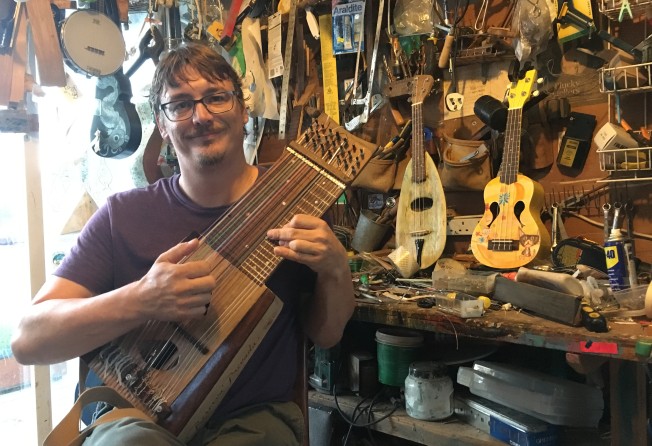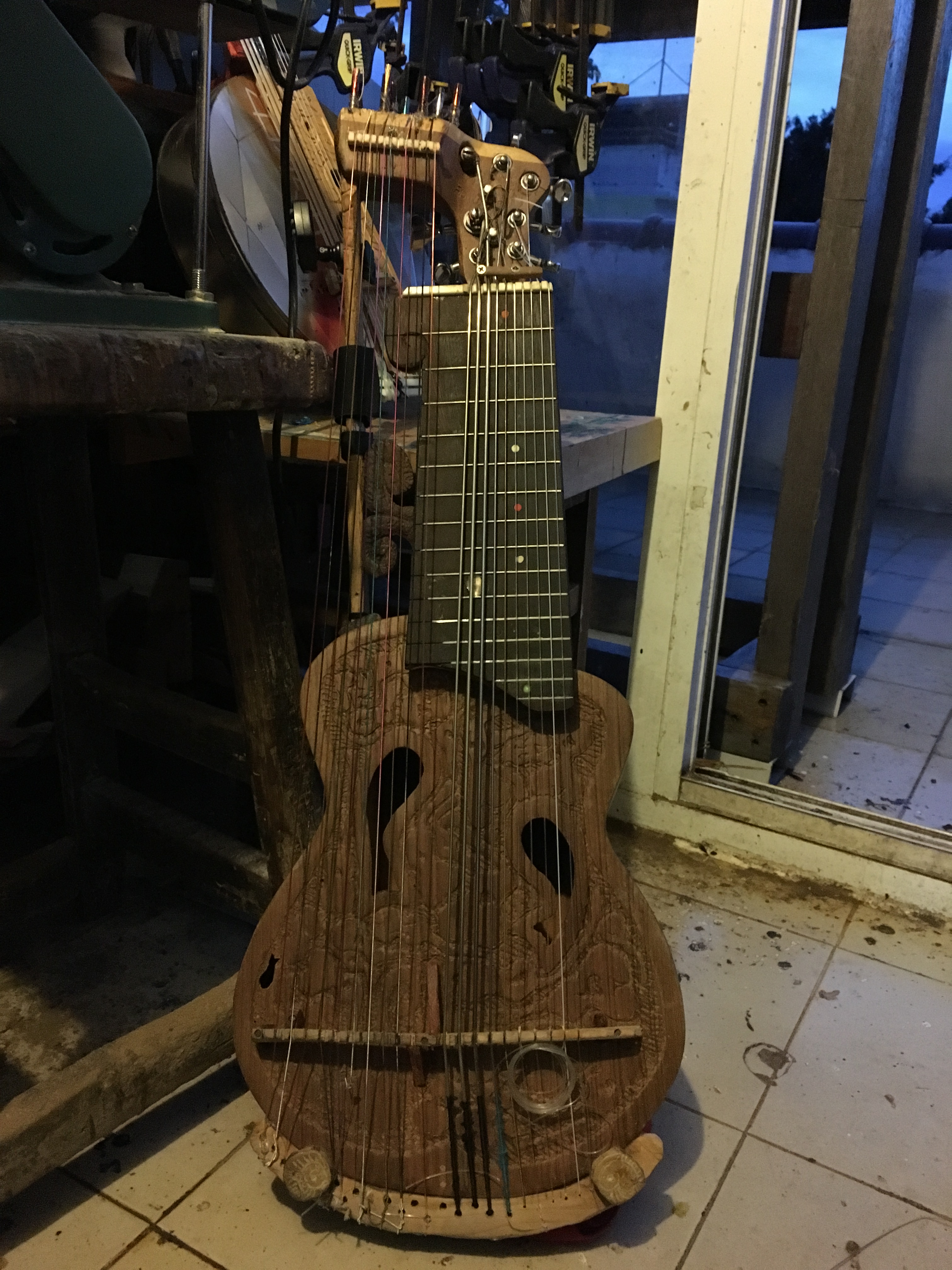Postmodern Luthier Evan Binkley Makes Crazy-looking Ukuleles
Schoolteacher by day, ukulele craftsman by night, the Cheung Chau resident made his first ukulele when he was 17. He now makes and sells the instrument under his own brand, Fish Ukulele.

What do you love about ukuleles? I enjoy the lightheartedness of the instrument, and I need the relaxation it gives. I love that it’s portable. And the other thing I like is that ukulele players accept quite a wide range of craziness in style. You don’t hear ukulele players say, “I have a certificate in ukulele accomplishment at this level.” In Hong Kong, they formalize everything. There is a concept that music education will give you better grades and better concentration and get you a certificate to help you to get into secondary school. But to me, music is about having fun, enjoyment and expressing yourself—picking it up and playing it even if you don’t know how.
You run “Fish Ukulele”—so do you like fish too? I grew up with a love for fish. One of my brothers is a very serious fisherman and the other might as well be a fish scientist because he collects salmon. In college, I was influenced by graffiti culture and I made my first little logo out of a drawing of a catfish. I like catfish because they’re the ultimate underappreciated survivors: You can pull them out of the water and they’re still alive four hours later. They can eat just about anything and survive. But someone already had the name “Catfish Ukulele,” so I just shortened my brand to “Fish Ukulele.” It’s so much easier to remember anyway.

What makes your ukuleles so special? Almost everything. It was before the internet when I learned how to make the ukulele, so I had to read up on the techniques. But I rarely use them: I’m just not inspired to make a traditional ukulele the traditional way. What I do find inspiring are the things I see everywhere—the garbage, the floor, crazy old instruments. I intentionally never make any of my own ukuleles completely symmetrical, because I’m not interested in starting something where I know how it’s going to look when it’s done. Most of my creations are crazy-looking. You don’t get many hours in life, so just do something completely different.

Can you earn a living making and selling ukuleles? Several years ago I might’ve been able to, when they were popular. I sell 10 to 20 ukuleles a month, which makes only a small profit. But I used to work as a glassblower in the US and I know what happens when you have to make a lot of stuff that you don’t want to make, but just because someone told you to. When it doesn’t turn out right, you get stuck with a bunch of stuff that you didn’t even like when you made it! Most of the people who are successful happen to love making what people happen to want to buy.
Shouldn’t you be living on Lamma Island with all the Lamma hippies? When we first came to Hong Kong my wife wanted to go to Lamma—10 years ago, Cheung Chau was considered hillbilly. I went to Lamma and thought it was OK, but I was really uncomfortable with the fact that some places were “white people places.” I’ve been living in Cheung Chau for 11 years now. It’s organic and the relationship between the westerners who live here and the locals is not contentious. In a lot of ways, Cheung Chau is more Chinese than Hong Kong. In some ways, it’s more Chinese than the mainland. It has the balanced Chinese culture of deep personal relationships and trust that both Hong Kong and the mainland have lost. If you’re Chinese and you move to America and you live in Chinatown, are you living in America? If you’re a westerner and you move to gweilo town, are you really living in Hong Kong?